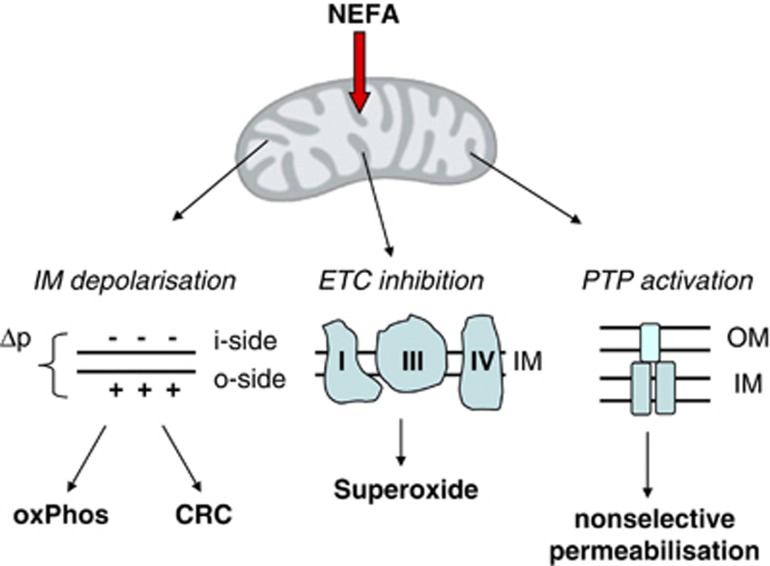The body uses 2 dedicated groups of fuel molecules (fats and sugars) and can break down its own structure molecules in case of emergency (proteins). The brain uses sugars, mostly glucose, and ketone bodies, a soluble form of acetyl derived from fat breakdown. I love this question, Roland, since you've probably hit on an open, poorly investigated question that goes to the fundamentals of why neurons evolved to be this specialized. So why does the neuron rely much less on fats and proteins than more flexible cells like those of the liver?
Protein digestion could indeed be dangerous for neurons because it produces ammonium (NH4+). Neither fats nor sugars contain significant amounts of nitrogen. Their final breakdown products, H2O and CO2, are harmless. Ammonium, on the other hand, is very similar to potassium (K+), an ion central to the neuronal membrane potential and thus its function. It has a similar size and charge (see image below) and is hypothesized to mess with potassium signaling in the brain. It might do this by interfering with K+ transporters (see this schematic by Eid).

This leaves us with fats. I have 2 hypotheses here. The final steps of fat breakdown in the mitochondrion involve the transfer of electrons onto oxygen to produce water. An unavoidable side reaction here is the creation of a small amounts of reactive oxygen species that have the potential to damage close-by molecules via radical reactions. Since neurons are so long lived, this is very dangerous for them as they accumulate damage little by little. Not so for liver cells which are readily replaced if damaged beyond recovery. Second, fat breakdown is a much slower way to energy/ATP than glucose breakdown, since it involves the sequential shortening of the fatty acid chain (beta oxidation), the generation of reduced intermediates (mostly NADH in the citrate cycle), and finally oxidative phosphorylation - several dozen steps in total. Glucose metabolism yields ATP quickly in just a few steps (glycolysis). Ketone bodies also fit, since they are already very short and thus much more quickly metabolized than long chain fatty acids. A combination of these 2 reasons might be why neurons prefer glucose to fats, but I believe this is a poorly investigated question that merits more research. PhD anybody?


